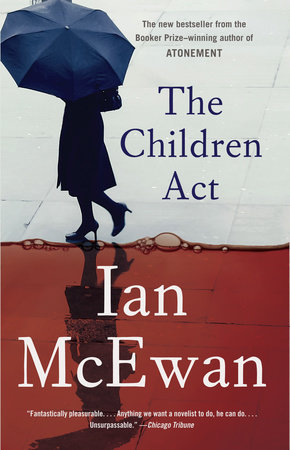Reading Group Center
- Home •
- Books by Category •
- Imprints •
- News •
- Videos •
- Media Center •
- Reading Group Center
The Life-and-Death Decision of Ian McEwan’s The Children Act
In The Children Act, Ian McEwan uses the art of fiction and his formidable powers as a writer to illuminate the human drama behind an unusual court case. A seventeen-year-old boy requires a blood transfusion to survive a potentially fatal illness, but, on religious grounds, he and his parents refuse medical intervention. Because the child is a minor, it’s up to the family court judge presiding over his case to make the life-and-death decision of whether to respect the family’s wishes or not. Should the secular court overrule faith when it comes to the future of a child? And do children belong to their parents—or the world? McEwan raises these questions and probes themes of family, belief, and human fallibility in a masterful and profound way. In an interview for NPR, he explains why this story lends itself to exploration in the fictional realm so well—and, by the same token, we believe, of course, to book club discussion!
What drew me to this subject was the thought that this family division, especially, has pitched its camp right on the terrain of fiction. You’re looking at love and the end of love, the contested fates of children, deathbed wishes, medical ethics. The only difference is that judges, unlike the lucky novelist, judges have to make a verdict—have to give a verdict—whereas novelists can simply investigate the terrain, bring it before us.
Click on the player below to listen to the full NPR interview.


